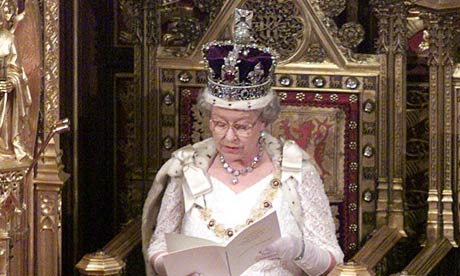

However, the fictional works of those who did reflect some of the public concerns with the roles of the British monarchy, and anti-monarchist views are mainly influenced by campaign group Republic. 1 Only few English writers have included the monarchy in their writings.

Numerous royal biographers have attempted to capture the private dimension of the British monarchy, especially that of the royal head, namely, Her Majesty Queen Elizabeth II.

She has reigned in times of post-war turmoil, has witnessed the disintegration of the Empire, and has watched over Britain as a growing multicultural nation. Her long reign has definitely not been an easy one, with multiple changes affecting the British society or her family over the years. Public attention has been all the more intense in relation to one of the most celebrated European monarchs and Britain’s second-longest reigning monarch, Queen Elizabeth II (1952 – ). Public interest in and fascination with the lives of the royals and the subject of monarchy in general has always been significant. Apart from that, the article also discusses the possibility for self-discovery and personal achievement animated by the Queen’s new passion for books. Stimulated by reading, the Queen’s decision to write “a tangential history” (119) of her times will be an invitation addressed to her people to reflect on the demoted political power of their monarch and the political evils that result from it.

The last part of the novel imagines the Queen as a potential writer, so the paper also deals with writing as an act of revelation and redemption. Thus, reading becomes a factor of social and affective communion with her people and also represents a process of discovery and acquisition of insight into human nature. The next section explores the potential of reading for the Queen and the ways in which reading contributes to change in matters of both private and professional life. The first part also draws the connection between the media craze which exposes the private side of the royalty and Bennett’s disclosure of the humanity of Queen Elizabeth II through the mediation of the world of literature instead of that of tabloids or television. The introduction presents the background to Bennett’s novella, with special emphasis on the monarchist and anti-monarchist trends in Britain, as well as on the increased popularity of the monarchy as a result of intensive media coverage. This article looks at Alan Bennett’s fictional exercise in The Uncommon Reader (2006/2008), which provides the British monarchy with a human face and analyses the effects of this process of humanization through reading. Mihaela Culea, Vasile Alecsandri University of Bacau, Romania Indexing and Abstracting and Preservation of Digital Contents.


 0 kommentar(er)
0 kommentar(er)
